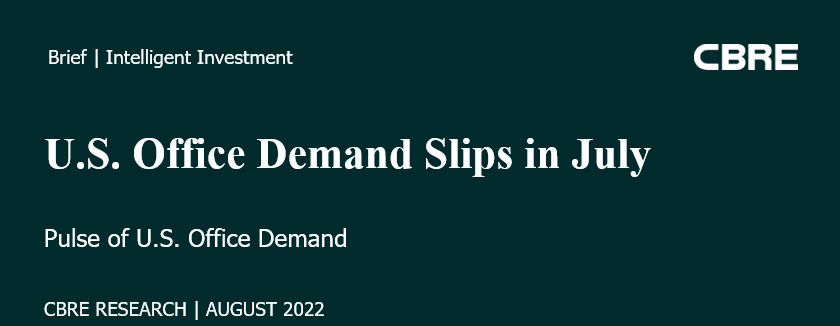
• Demand for office space slowed in July, as high inflation and economic uncertainty weighed on occupier decision-making about long-term lease commitments. Existing tenants continued to offload underutilized space.
• The U.S. Leasing Activity Index fell for a second straight month to 79% of pre-pandemic levels. Although Boston had the sharpest drop, the market maintained its top ranking with an index level of 124.
• Three of the 11 Pulse markets recorded increases in their July Leasing Activity Index levels: San Francisco (+25 points), Denver (+3), and Seattle (+2).
• The U.S. Tenants in the Market Index edged down 3 points to 85 in July. The index has changed very little over the past six months, indicating that tenants are searching for space but are hesitant to transact.
• The U.S. Sublease Availability Index increased by 9 points to a pandemic-era high of 219 in July. Only two of the 11 Pulse markets had less sublease availability in July: Manhattan (-5 points) and Chicago (-2).
• Markets with significant increases in sublease space last month include Seattle (+16 points) and Philadelphia (+16), both of which had several small to medium-sized technology, finance and insurance tenants list space for sublease. In addition, Los Angeles (+14) had a few large creative industry and technology tenants gave back space in Tri-Cities/Glendale and West LA, and Atlanta (+14) had a variety of tenants list space in suburban markets.
Explore The Pulse of U.S. Office Demand